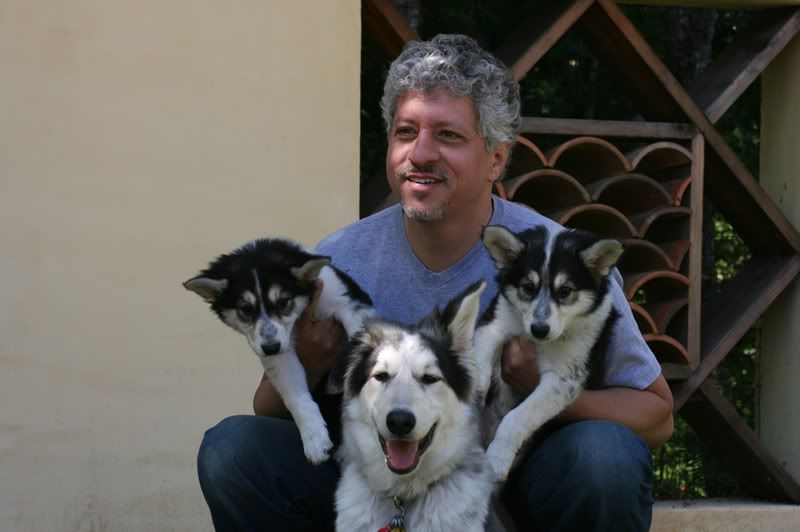Friday dogblogging: The cruelty of cloning pets
 On the heels of a U.S. company's announcement that it will auction off five dog clonings to the general public next month, two prominent animal welfare organizations have released a report documenting the cruelty inherent in the practice.
On the heels of a U.S. company's announcement that it will auction off five dog clonings to the general public next month, two prominent animal welfare organizations have released a report documenting the cruelty inherent in the practice.
Earlier this week, BioArts International of California unveiled what it calls the "Best Friends Again" program, which aims to replicate five family dogs. Bidding will start at $100,000 and begins June 18. The program has its roots in the so-called "Missyplicity Project," an effort to clone BioArts CEO Lou Hawthorne's beloved dog Missy.
BioArts is undertaking the project with the Sooam Biotech Research Foundation in South Korea, where one of the principal scientists is Hwang Woo Suk. In 2004, a team led by Dr. Hwang reported that it had made cloned human embryos and stem cells -- claims later found to be fraudulent.
Shortly after BioArts' announcement, the Humane Society of the United States and the American Anti-Vivisection Society released a report titled "Buyers Beware: Pet Cloning Is Not for Pet Lovers." HSUS and AAVS call pet cloning research a "bizarre scientific endeavor" fraught with failure and animal suffering:
"It is time for would-be pet cloners to be revealed for what they are -- hucksters who have been involved in questionable activities, including preying upon people who have developed a strong bond with a beloved pet," says Wayne Pacelle, president and CEO of The HSUS. "Consumers are often unaware of the suffering endured by animals used for cloning, or don't understand that cloning won't necessarily result in a pet that looks or acts like their deceased companion."
The study shows that more than 99 percent of cloning attempts reported in scientific journals failed to produce a healthy animal. Researchers subjected more than 530 dogs and cats to invasive and painful procedures including hormone treatments and surgeries to produce just five cloned dogs and 11 cloned cats that survived more than 30 days. The HSUS/AAVS report also raises concerns about the fact that the U.S. pet cloning industry is not regulated like other research facilities that experiment on animals.
BioArts' Hawthorne previously served as the CEO of Genetic Savings & Clone, a company established by University of Phoenix founder and billionaire John Sperling, who provided more than $3 million for dog and cat cloning experiments led by Dr. Mark Westhusin at Texas A&M University. In 2002, Sperling cut off funding to the school over disagreements about scientific procedures and priorities.
Other companies that have tried to cash in on people's desire for pet immortality include Lazaron Biotechnologies of Louisiana and ForeverPet of California, both of which have since gone out of business. PerPETuate, a company associated with livestock cloning firm Cyagra Inc. of Pennsylvania, currently offers pet DNA preservation services that "may be used to clone these special animals when pet cloning becomes technically and financially feasible."
CORRECTION: This post originally said that BioArts was established by University of Phoenix founder and billionaire John Sperling; in fact, Sperling is not affiliated with BioArts. We apologize for the error.
(Photo of BioArts CEO Lou Hawthorne and three Missy clones from the company's website)
Tags
Sue Sturgis
Sue is the former editorial director of Facing South and the Institute for Southern Studies.
